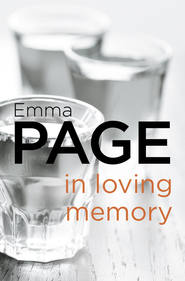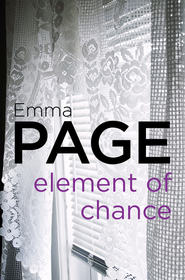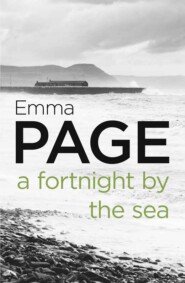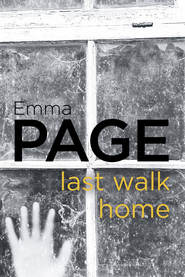По всем вопросам обращайтесь на: info@litportal.ru
(©) 2003-2024.
✖
Scent of Death
Автор
Год написания книги
2018
Настройки чтения
Размер шрифта
Высота строк
Поля
He shook his head again, with finality. ‘No use asking me. I haven’t been here twelve months.’ He handed her the photographs and she took them reluctantly. He moved away to serve a customer.
She turned her head and glanced along the counter at Lambert. She picked up her duffel-bag and moved towards him. Before she had a chance to speak he said, ‘This isn’t my usual pub, I hardly ever come in here.’ This evening he’d had half an hour to kill; he’d come in out of the wind and rain only a few minutes earlier.
She thrust the photos at him, undeterred. ‘There’s no special connection with this pub. You might have seen her somewhere else in Cannonbridge, I’m just trying to trace her. I’m going to ask everywhere: pubs, shops, cafés, offices, works. I’ve just come over from Martleigh on the train, that’s the only reason I picked this pub to start with.’
He looked through the photographs, which appeared to have been taken over a period of two or three years. The girl they showed bore a strong resemblance to the girl in front of him. She had the same long black hair, the same pale skin and very dark eyes, but she was a good deal better-looking, her features less sharp, the cheekbones more delicately moulded. ‘Your sister?’ he asked.
She nodded. ‘Of course she’s older than that now. She left home four years ago, she was only sixteen when the last of those was taken. She’ll be twenty-one in March.’
‘Have you heard nothing from her in four years?’
‘No.’
‘It’s a long time,’ he said. ‘I wouldn’t get your hopes up too high. She could be anywhere by now.’
Conversation ebbed and flowed around them. He looked up at the clock; it showed five minutes to seven. In twenty minutes he was due to pick up the parents of a lad he took an interest in, a lad on probation, making a strong effort to go straight. He was going to run them up to the infirmary where the lad was recovering from pneumonia following a severe attack of influenza.
‘I haven’t much time,’ he told her. ‘I have to go in a few minutes. Have you some special reason for wanting to find your sister?’
‘I must find her,’ she said with force. ‘There’s some money involved. My aunt died before Christmas – she lived up north, we hadn’t seen her for years. We had a letter from a solicitor. My aunt didn’t leave a will, and it seems my sister and I are the only relatives, her money will all come to us. Not that she had a lot to leave, a few thousand pounds, but it would mean a great deal to me. I went up north to see the solicitor. I explained about Helen, that we didn’t know where she was. They won’t pay the money out till she’s found – or at least they will in the end, but it would take ages, and I don’t want to wait for the money.’
‘You need it in a hurry?’
‘Yes, I do. I want to go abroad.’
‘For a holiday?’
‘No. To study art, in France and Italy. I never thought I’d get the chance.’
‘We?’ he queried. ‘You said just now: We didn’t know where she was.’
‘I live with my stepbrother.’ She pulled a face. ‘I can’t wait to get away.’
‘He’s older than you?’
‘Oh yes, he’s turned forty. He’s as mean as sin. I’d have to wait one hell of a long time if I waited for him to give – or even lend – me the money to go abroad.’
‘What’s his attitude to all this? Did he encourage you to come over here to look for your sister?’
‘He certainly did not. He told me I was a fool, I was wasting my time.’
‘Do you definitely know that your sister came to Cannonbridge when she left home?’
‘No, I don’t know that. I have no idea where she went, she didn’t tell me anything. I only knew she was leaving because I happened to go into her bedroom the evening before she left and found her packing. I was only a kid at the time, thirteen, and we’d never been very close. She wouldn’t say where she was going or what she was planning to do. She told me I could have any things she left behind, she wouldn’t be coming back for them. She said: You want to clear out yourself when you’re old enough.’ She laughed. ‘That’s what I’m trying to do.’
‘Did your stepbrother ever try to find your sister?’
‘Not he. He was glad to see the back of her. He wouldn’t care if he never clapped eyes on either of us again.’
‘What made you decide on Cannonbridge to start looking for her?’
‘A girl I know, a girl from school, she told me about a year after Helen left that she’d seen her in Cannonbridge one Saturday when she was over here shopping with her mother. She saw Helen coming out of a café. She didn’t speak to her but she got a good look at her. She was quite certain it was Helen.’
‘Helen what?’ Lambert asked.
‘Mowbray. I’m Joanne Mowbray.’ Her look altered suddenly, became wary, tinged with incipient hostility. ‘Are you a copper?’
‘Yes.’ There was a brief silence. ‘I have to pick up some people,’ he said. ‘I can’t keep them waiting. Your best chance is to call in at a police station. They’ll do what they can to help you.’
She set her jaw. ‘I don’t want the police dragged into this. And I’m sure Helen wouldn’t either.’ She picked up the photographs. ‘If she’s here I’ll find her. She took a secretarial and book-keeping course at school, she worked for an agency before she left Martleigh. I’ll call in at the agencies here in the morning, she could have gone to one of them.’
‘I’m at the main police station here in Cannonbridge,’ he told her. ‘My name’s Lambert. Detective Sergeant Lambert. If you call in there tomorrow morning—’ She was already shaking her head. ‘It doesn’t have to be me,’ he added. ‘You can see someone else – or you can call in at one of the other stations if you prefer. I’m sure you’d find it useful.’
‘No, thanks,’ she said stubbornly. ‘I’ll manage on my own.’ Without looking at him she added, ‘Thanks, anyway, for taking the time to talk to me.’ She glanced up and flashed him a sudden smile. She had small, even teeth, very white; she looked all at once open and vulnerable, scarcely more than a schoolgirl. ‘At least you showed more interest than the barman.’
March came in with a whirl of sleet and snow. The weather kept up its manic mood: gale force winds, showers of hail, sudden mild sweet days vanishing abruptly twenty-four hours later in fog and rain. Sergeant Lambert was kept pretty busy, no one case of consuming interest, just the steady unrelenting pressure of the old faithfuls: breaking and entering, thefts from cars, vandalism and hooliganism, minor fraud and embezzlement, assault and violence of greater or lesser degree.
On one of his sorties he found himself driving past the Railway Tavern. He had a brief surge of memory: the black-haired girl flinging back the hood of her anorak, scattering raindrops, glancing determinedly around the bar. Joanne Mowbray. If she’d called in at the main police station she certainly hadn’t come his way. She might have found her sister by now; it was three weeks since that Sunday evening. The lad had left hospital, was convalescing at home with his parents.
At the thought he glanced at his watch. He might take five minutes to look in on them while he was over this way. He turned left at the next intersection. The memory of Joanne and her bundle of photographs dropped away into the recesses of his brain.
The Easter break threatened to be bitterly cold; night frosts, daytime temperatures kept low by brisk north-westerly winds. The evening of Good Friday was dark and overcast. At about eight o’clock a twelve-year-old lad by the name of Graham Cooney, living on the Parkfield council estate on the southern edge of Cannonbridge, a run-down area well represented in local petty-crime statistics, phoned the main police station from a call-box – to do this he had to run a quarter of a mile, all the Parkfield kiosks being, as usual, vandalized and out of action – to report the fact that his brother Jason, a child of four, had not come home since leaving the house at two in the afternoon to play with other children on the estate.
Mrs Cooney had not become seriously alarmed until the early evening. She had then sent her daughter, a girl of eight, chasing and calling round the estate, knocking on doors, asking if anyone had seen Jason. All without success. At about seven o’clock Graham had returned home and joined in the search. When he could discover no trace of the missing child it was he who had taken the decision to ring the police.
This was a routine matter for the uniformed branch. The usual drill went into operation, with some added drive because of the sharp frost forecast: patrol cars asked to keep a look-out, detailed tours of the area, broadcasts from the local radio station, asking householders to search cellars and outhouses. None of it produced any result.
At first light a more thorough and urgent search began. A troop of Scouts undertook a yard-by-yard sweep of neighbouring woodland, police cadets examined the area around the railway line and along the banks of the river. Another sharp frost was forecast for Saturday night. It was thought unlikely that a child of that age, in the clothes he was wearing when he left home, would survive a second night of hunger in the open.
By nightfall, again with no result, the Parkfield estate was alive with rumours: strange cars had been observed cruising about the streets earlier in the week; a lorry that had broken down on the main road near the entrance to the estate, on the afternoon of Good Friday, had remained stranded there until five or six in the evening. There was by now a general belief on the part of the estate dwellers – if not yet of the police – that the child had been abducted. Shortly after nine p.m. the CID were called in.
The light-bulb centred above the table in Mrs Cooney’s kitchen shone down white and harsh, without the benefit of any softening shade. An ancient alarm clock on the mantelshelf showed ten-fifteen. The house was very cold and smelled of damp and mould, with an overlay of soot. Through the party-wall came the sound of a radio, a brass band playing a rousing regimental march.
Mrs Cooney stood by the stove, making yet another pot of tea. She upturned the tea-caddy, shaking the last few leaves into the pot. She was a widow, a big, fleshy woman a year or two past forty, with a weary, resigned face, muddy skin, lifeless hair taken back anyhow, looks gone long ago from work, worry and hard times, the summit of her endeavours now, as far as personal appearances went, being merely to keep herself and her four children reasonably clean, not to drop so far down the scale of clothing as to be taken for gipsies.
‘Run next door,’ she instructed Graham, who was sitting hunched over the table, doing his best to keep awake, digging his knuckles into his eyes. ‘Ask them if they can spare me a packet of tea. I’ll let them have it back for sure on Wednesday.’ Her two other children, girls of eight and two, were upstairs in bed – the same bed, for warmth. Her husband had died six months before the youngest child was born; a strongly built, jovial man, struck suddenly down by virus pneumonia. He had been a plasterer, unemployed during the recession, finally taking the plunge and setting up on his own. He was just beginning to find his feet when he fell ill. With his death there had been an abrupt descent into poverty.
Graham pushed back his chair and went yawning out through the back door. A sturdy boy, tall for his age, with a sensible, serious air.
‘He’s a good lad,’ Mrs Cooney observed to Sergeant Lambert who stood leaning against the dresser. ‘He’d do anything for anyone. You couldn’t wish for a better son.’ She showed no sign of hysteria. She hadn’t collapsed into tears or exhaustion, she went soldiering on through this crisis as she’d soldiered on through all the others. It seemed to Lambert that already she more than half accepted the possibility that Jason might not be found alive. She seemed to have armoured herself with a stoical, fatalistic view of life. as if she had long ago concluded that beyond a certain point struggle was useless.
She took Lambert’s mug and poured in a little milk made from powdered skim; it had grown progressively more diluted as the day advanced. She poured out the tea. Just as well he didn’t take sugar, her supply of that had run out some time ago.
Lambert drank his tea. ‘Not a lot more we can do tonight,’ he told her. ‘We’ll be back first thing in the morning.’
‘Thank God I don’t have to go to work tomorrow,’ she said with fervour. Missing child or not, the loss of a few hours’ wages would have been disastrous. She worked five mornings a week, five o’clock till seven, cleaning in a factory on the industrial estate. She left the two older children in charge of the little ones. She was always back by half past seven, had taught herself not to worry about them while she was away. She couldn’t take a regular daytime job, not with Jason and the baby.
Graham came back with the packet of tea and set it down by the stove; he could scarcely keep his eyes open. ‘You’re sure you didn’t see anything of Jason yesterday afternoon?’ Lambert suddenly asked him. He’d already questioned the boy. He seemed a decent enough lad, cooperative and observant, but Lambert hadn’t been one hundred per cent satisfied with his answers. Nothing he could put a finger on but some doubt registered with him all the same.











